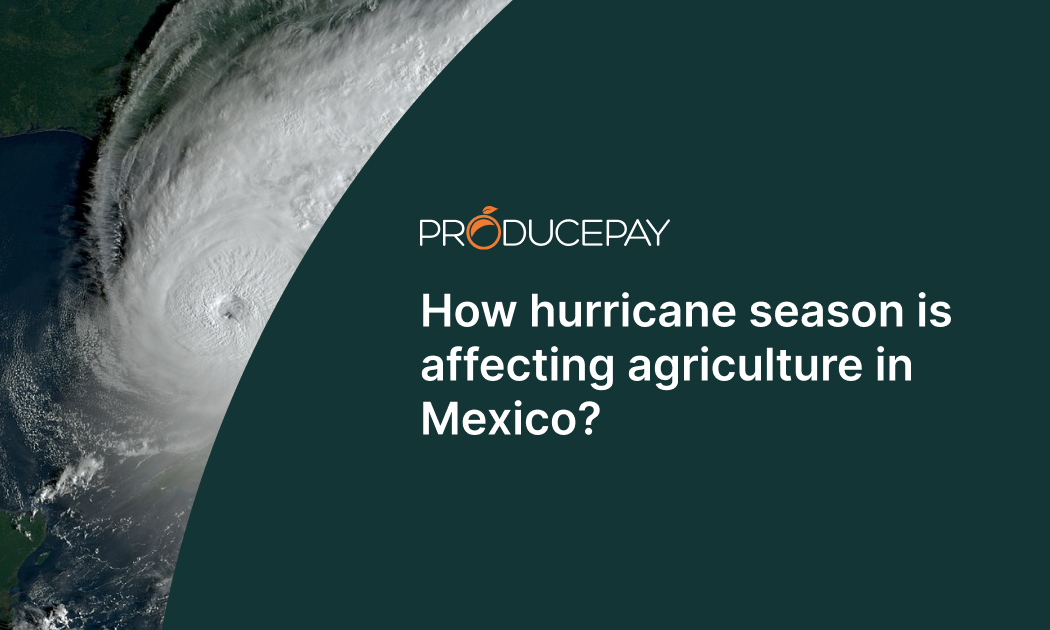
How hurricane season is affecting agriculture in Mexico?
Hurricanes are one of the most destructive natural phenomena the agricultural industry faces. However, their overall effects are complex, and they can even have some positive impact on growers.
Farmers take preventive measures to protect themselves, such as insuring their crops and equipment and having a post-hurricane recovery plan.
What is the hurricane calendar?
The hurricane season in Mexico typically runs from May 15 to November 30. During this period, the Gulf of Mexico, the Caribbean Sea, and the Pacific Ocean are more likely to experience weather conditions conducive to hurricane formation and development.
- Gulf and Caribbean coasts: Begins in mid-June and ends in November, with the greatest frequency of hurricanes in September and October.
- Atlantic: Typically extends from June 1 to November 30.
- Pacific: It goes from May 15 to November 30.
How do hurricanes affect agriculture?
Hurricanes can destroy fields with flooding, landslides and high winds. Crops in the growing or maturing stage are particularly susceptible to damage because they have greater exposure.
They can also have secondary effects by damaging highways and other critical infrastructure, impeding crop distribution and increasing production and marketing costs.
The force of hurricanes can be so intense that they can damage inland farmland in addition to coaster areas.
Do hurricanes provide any benefits for agriculture?
Despite their destructive power, hurricanes can offer some beneficial effects. Heavy rainfall replenishes aquifers and reservoirs, improving the water supply for crops during drought periods.
Torrential rains can help reduce soil salinity in coastal areas and enhance soil quality for agriculture.
Hurricanes can also transport nutrients and sediments from marine areas to coastal regions, which enrich the soil and promote crop growth. Additionally, sediments deposited by flooding caused by hurricanes contribute organic matter and minerals to the ground, enhancing its fertility.
However, it is crucial to remember that the benefits of hurricanes in agriculture are not easily predictable and are generally overshadowed by the damage and losses caused by these phenomena.
Sources: Vanguardia, Sociedad y Ambiente, Meteorología en red
